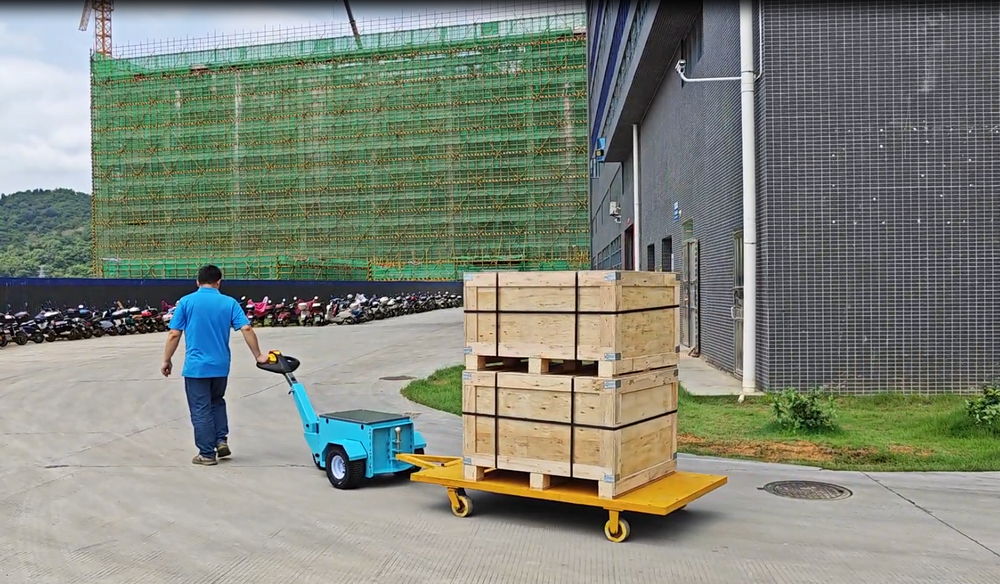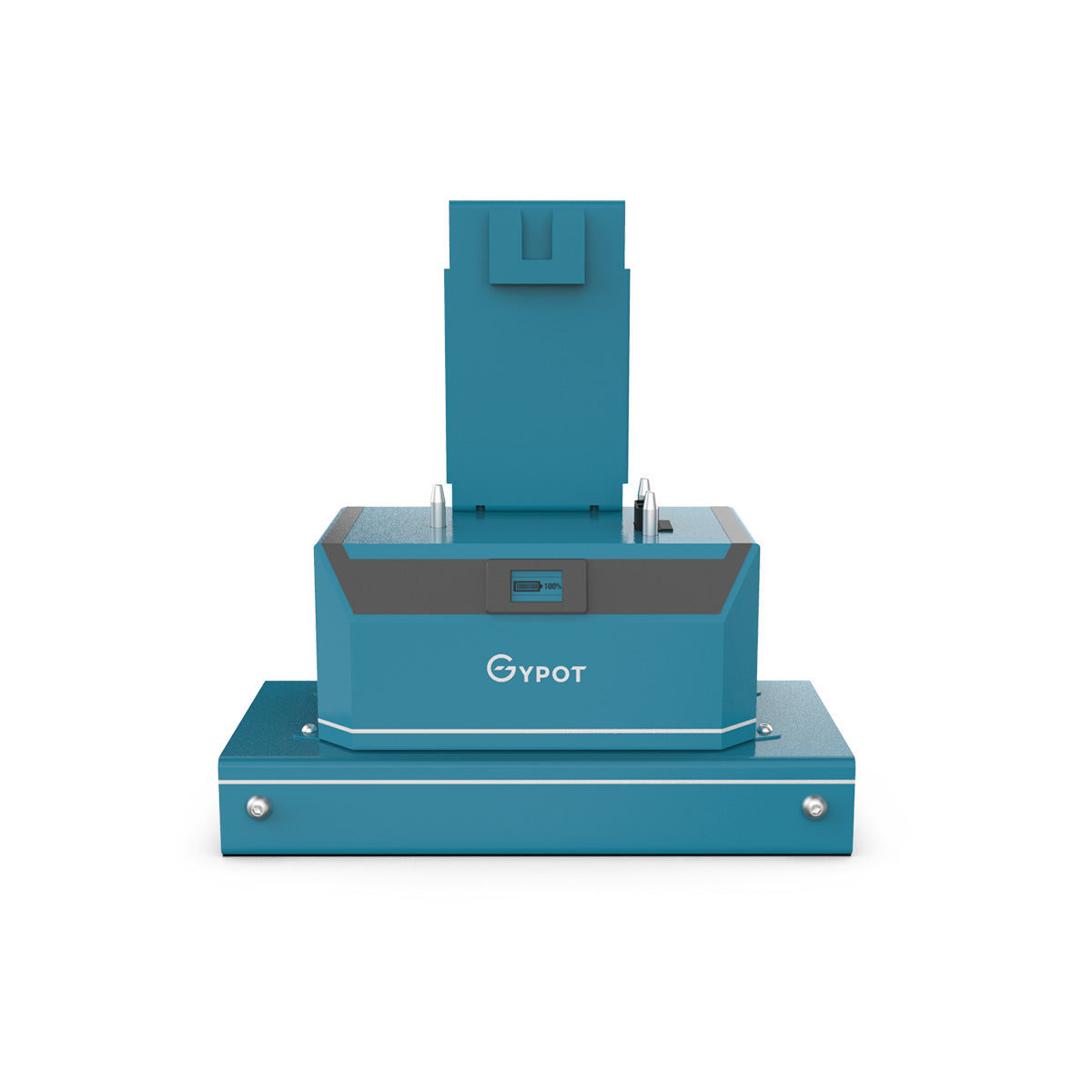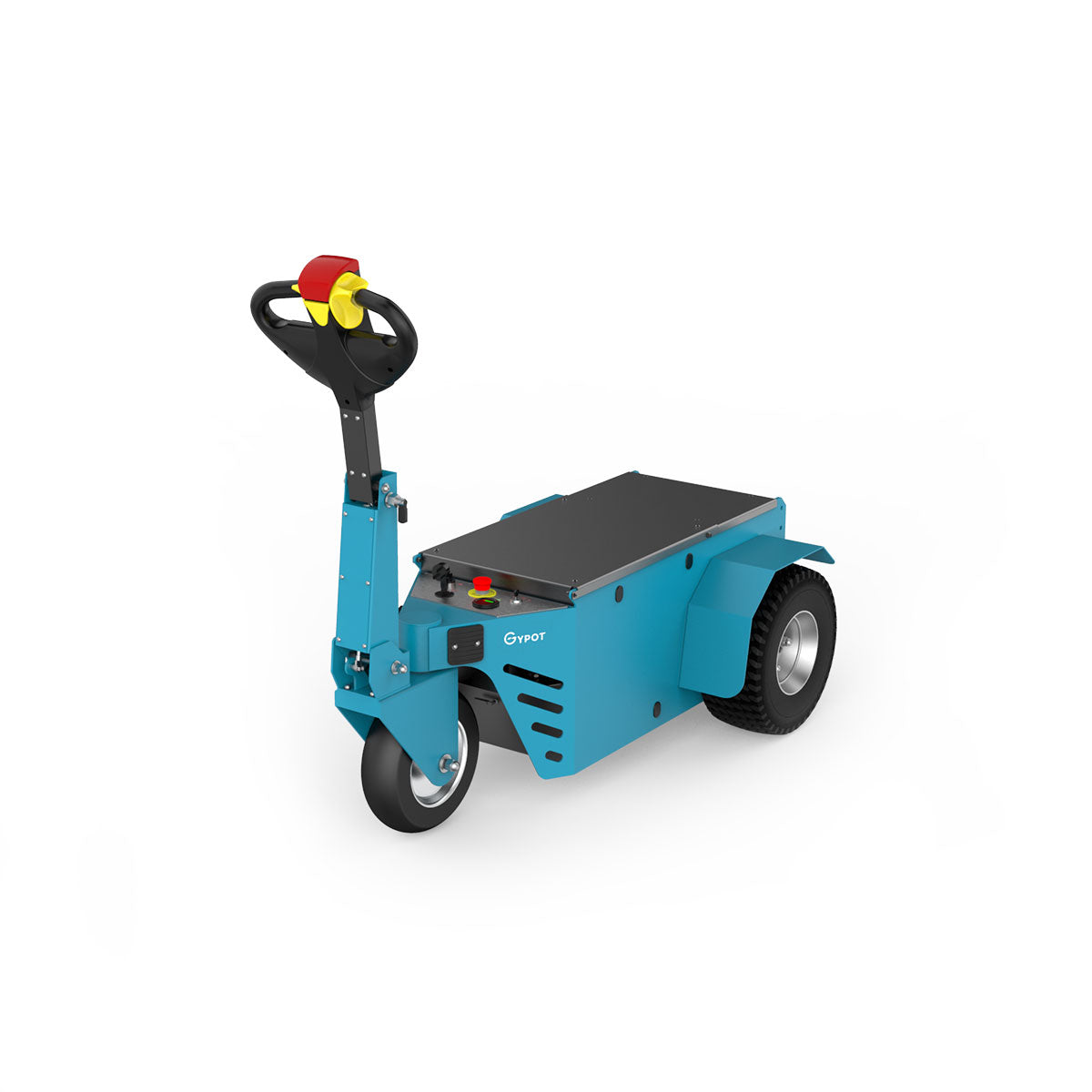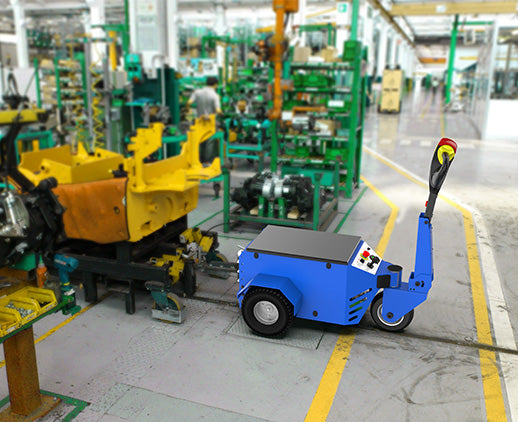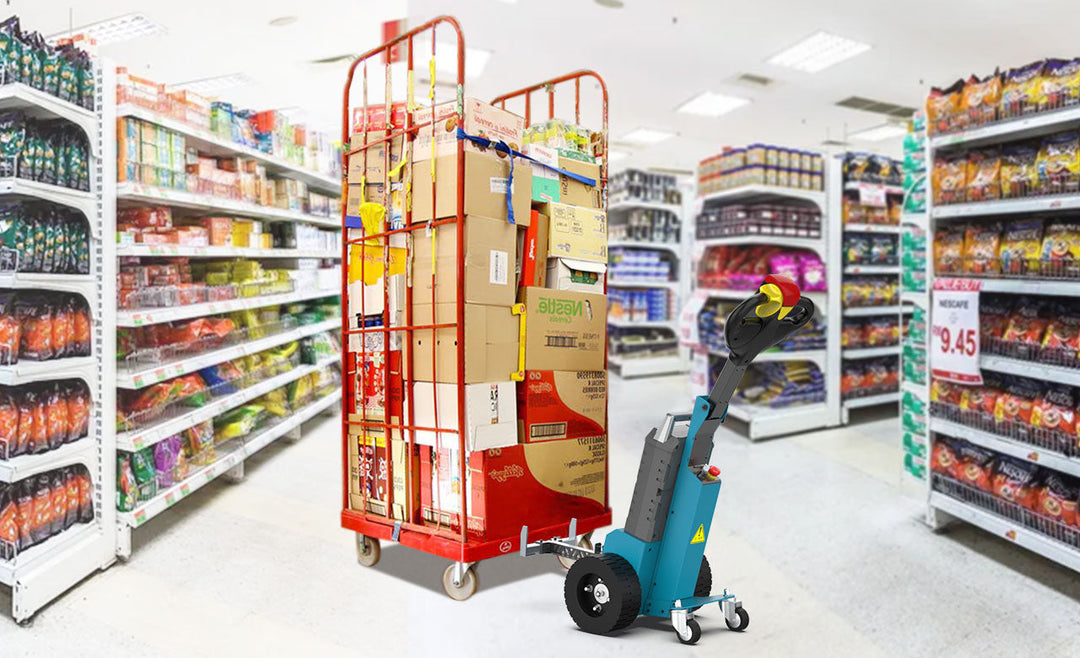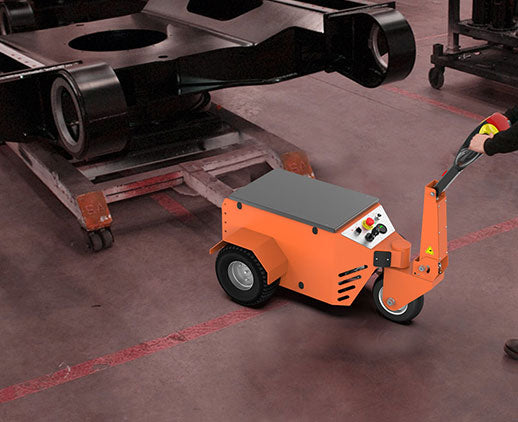Why Should You Consider Investing in a Motorized Tugger for Your Warehouse
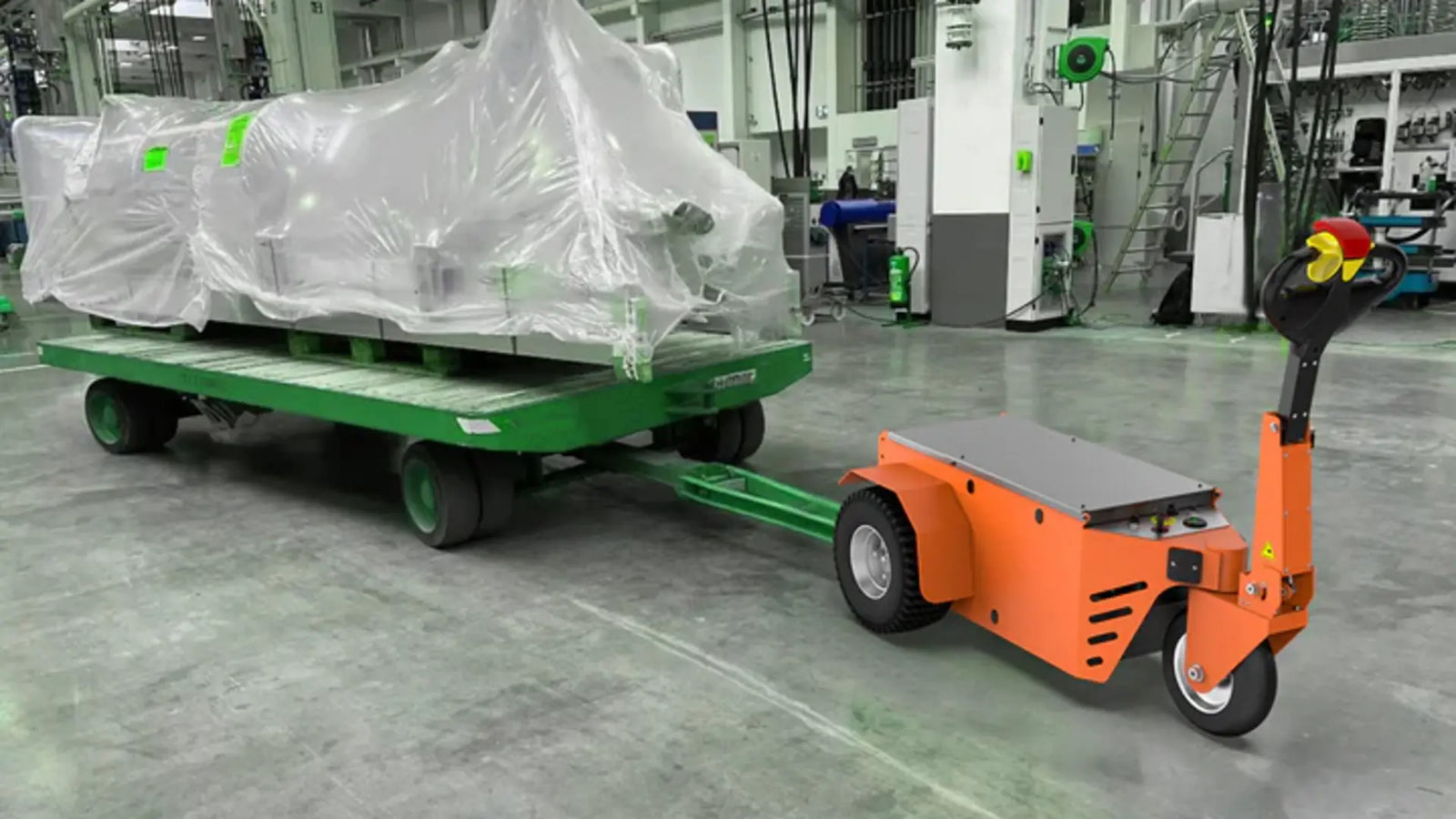
Investing in electric tow trucks can significantly improve warehouse efficiency, save time, and reduce labor costs. They help reduce workplace injuries, improve inventory accuracy, and increase flexibility and scalability. With seamless integration into existing systems, electric tow trucks are an ideal choice for modern warehouse automation.
Boost Warehouse Efficiency
Efficiency is something sought in modern-day warehouses. Electric tow trucks improve warehouse efficiency tremendously. Traditional warehouse operations are performed manually or with hand trucks, which are cumbersome and prone to human error, ultimately wasting time and resources. Studies show that electric tow trucks can reduce transport time up to 30%-50% and therefore would greatly enhance work efficiency.
Electric tow trucks drive more quickly and evenly, avoiding all the stop-start checking on manual handling, which permits even better material flow in the warehouse. For example, an electric tow truck would save not only waiting time but also labor costs during the process involved in transporting 2,000 orders within a day in a warehouse to handle even more orders.
Electric tow trucks can also optimize the placing and storing of the goods and hence compact warehouse arrangements. Automated transport systems can control the routes rather accurately by which goods are moved, thus preventing waste space by incorrectly stocked or stacked goods, which in turn increases the area for holding storage space and enhances holding efficiency.
Save Time with Automation
Time management also plays an important aspect in any warehouse. As automated equipment, electric tow trucks can save huge operational time and reduce delays and errors caused by human interference. For example, in manual handling, the worker must stop and rearrange many times, while electric tow trucks operate constantly without interruption, thus achieving smooth transportation of materials free of any human encumbrances.
After acquiring electric tow trucks, some warehouses registered a reduction in transport task completion times by about 40%. In addition, these electric tow trucks can be operated 24 hours a day and require only a few minutes for battery recharging. This is especially beneficial because most warehouses operate around-the-clock; hence, it helps avoid work stoppages by controlling human working hours.
Another upside to automation is that it minimizes delays due to human fatigue or judgment errors. Workers require several breaks to achieve effectivity in work output while electric tow trucks provide high-efficient continuous transport around the clock. Human factors are reduced, giving electric tow trucks time-saving benefits and also increased operational stability and accuracy.
Reduce Workplace Injuries
Warehouses are usually places of intensive labor where lifting of heavy objects and a lot of standing can result in injuries to workers due to the strain they experience especially on their backs and joints. Research has shown more than 30 percent of the injuries in the workplace that emanates from warehouses is linked to manual material handling. Significantly, electric tow trucks furnish an alternative for manual by replacing it with their use thereby increasing the possibility of lowering injuries among workers.
By using the electric tow truck, physical effort needed is effectively minimized in long-duration lifting operations. Electric tow trucks achieve transportation tasks without using as much force as typical manual handling, as well as along a more directed path. Their extremely smooth running prevents accidents due to improper handling of the forklift or hand truck, thus reducing work-related possible injuries.
Electric tow trucks are ergonomically designed; this results in their comfort while in use and provides a reduction in physical effort. Transporting even heavy loads by electric tow trucks is possible without taxing the operator's back and knees. This will significantly reduce the risk of developing diseases related to repetitive strain.
Lower Operating Costs
Electric towing vehicles might have an initial investment high, but remarkable savings on operation costs show over a period of time. It becomes a reality as warehouses' reliance on human labor greatly decreases, and that's the savings from labor obtained. For example, a typical manual handling work in a warehouse requires many laborers, but the use of electric towing trucks reduces the need for employees between 40 percent and 50 percent. Labor costs, particularly in intense warehouse environments such as bulk goods handling and express delivery, can be significantly different.
Electric tow trucks have lower costs in maintenance, particularly when compared to conventional internal combustion engine equipment. Subject to less wear and tear, they do not have to be replaced with complicated grooming of fuel management or hydraulic system. Not only do these save on the costs of repair, but also it takes lesser energy costs in the long run. While their fuel-powered counterparts, electrics have energy cost only one-third that of fuel-powered equipment, and because charging is short, they are very efficient.
Electric tow trucks minimize waiting time in the production process due to efficient transport of materials, translating into reduced costs associated with backlogged inventories. More effective transport of materials will reduce the waiting time of the goods resulting in smoother warehousing operations and will further reduce costs for warehouse space.
Improve Inventory Management
The accuracy of managing inventories goes hand in hand with the smoothness of warehouse operations and ultimately profits for a business. Electric tow trucks provide proficient and accurate goods delivery, thus improving the inventory accuracy for businesses. In turn, through automated transport, warehouses can precisely track the status of every item—receive to ship—and update their inventory management system accordingly.
With electric tow trucks and their advanced navigation systems effectively programmed to ferry goods along optimized transport routes without incurring useless detours or inaccuracies in inventory data. Most modern electric tow trucks are fitted with GPS and smart sensors that keep monitoring and adjusting transport paths in real-time, thus ensuring timely and correct transport of goods. Electric tow trucks can thus achieve the warehouse in maximum time possible for tasks involving rapid transport, such as perishable goods and urgent orders.
Automated transport usually limits the chances of inventory differences or loss due to human errors. The appropriate data provided by electric tow trucks can then be synchronized with the warehouse management system in a modern warehouse to allow real-time inventory updates, thus simplifying stock variances and enabling warehouse managers to make more precise restocking and shipping decisions.
Increase Flexibility and Scalability
When sales get hitched up and down, the warehouse must quickly modify electric tow trucks to fit it all. They have a tendency to require more manpower for sudden surges of demand when managed through traditional warehouse management systems. Increases in-human transport capacity in warehouses do not involve inducting many new employees into the potentially huge training and recruitment costs—Electric highways keep opening this up for future use through increasing the number of units.
These electric tow tractors will function highly adaptably as they can work perfectly in any type of warehouse setting, ranging from cold storage with low temperatures to settings where temperatures are extremely high or humidity levels are very high. Their flexible designs let the warehouse quickly shift movement solutions based on work conditions and different product types.
Electric tow trucks are now progressing continually on keeping pace with the current technological revolution, with an increasing scale of applications in future. The scientific control and IoT technologies will make them compatible with the other automation equipment in the warehouse and add flexibility and efficiency to the automated transport system of the warehouse.
Easy Integration into Existing Systems
Integrating electric tow trucks into an existing warehouse management system is one of the advantages of utilizing these features. The majority of modern warehouses are already equipped with a variety of automation devices and management software and the design of electric tow trucks allows incorporation directly into this without the often tedious process of complicated technical integration. Such systems update the transport-content in real time, which is good enough for smooth warehouse operations. Electric tow trucks can be linked effortlessly into existing warehouse management systems, inventory management systems, and transportation scheduling systems.
Their smart navigation allows the electric tow trucks to interact with conveyor belts and sorting machinery to accomplish far greater material handling activities within the warehouse. Electric tow trucks automatically travel to preset positions for picking up the load per system commands, conveying it then to the destination based on intelligent route planning, ensuring higher warehouse automation coupled with improved efficiency.
Not only does this integration impact the precision and fluidity of warehouse operations, but it also enables warehouse supervisors to foster increasingly closer decision-making based on data analytics, resulting in improved operations.




